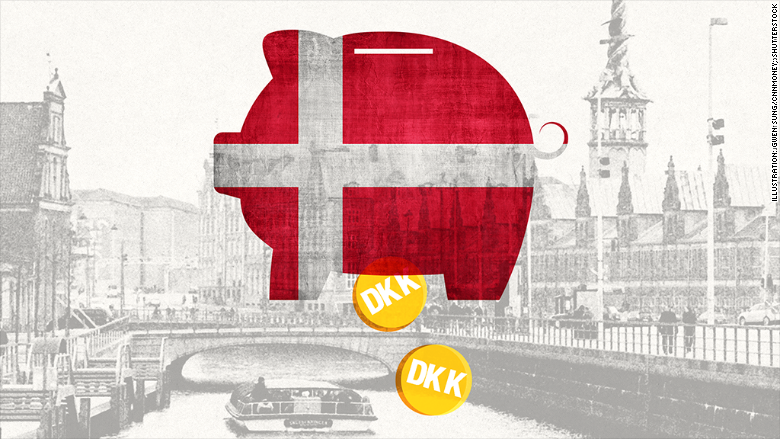
Would you pay a bank interest on your hard-earned savings? That's happening in one country in Europe as falling prices turn the world of finance on its head.
FIH Erhvervsbank, a small bank in Denmark, will charge customers 0.5% interest on their deposits from March. Local media say 25,000 people will be affected.
That means for every $100 they deposit, the bank will take 50 cents.
It says it has no choice because it is being similarly charged by the central bank, which has cut official interest rates deep into negative territory. The latest move by the Danish National Bank earlier this month took rates to a record low of minus 0.75%.
Related: Red alert! 12 central banks cut rates this year
Central banks around the world are taking extraordinary measures to tackle the growing threat of deflation and economic stagnation.
That's creating strange moves in financial markets -- yields on some sovereign bonds have turned negative, meaning investors are now willing to take small losses in exchange for the relative safety of lending to governments.
Some companies are also able to borrow money from investors for free.
Denmark has been caught in the fallout from the European Central Bank's decision to launch quantitative easing next month.
That will drive down European bond yields further, and has pushed money out of the euro in search of better returns elsewhere.
Countries that don't use the euro, such as Denmark and Switzerland, have seen huge inflows of cash. Their central banks have been forced to react to try to stop their currencies surging higher and inflicting economic pain.
Sweden became the latest country to introduce negative rates Thursday, cutting its benchmark rate to minus 0.1%.


